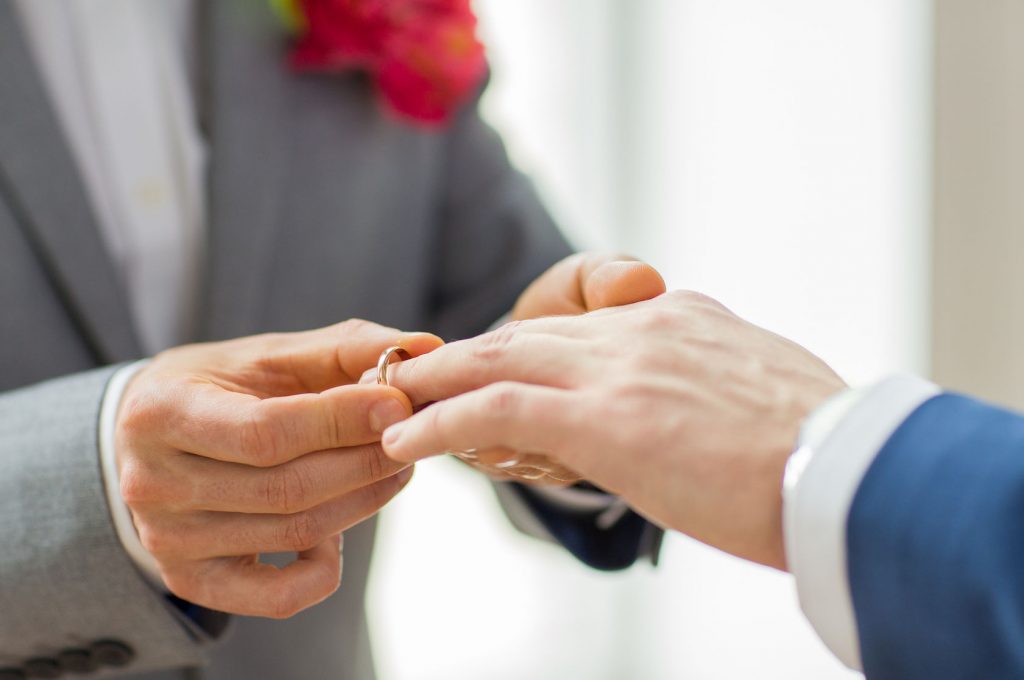The European Disunion of marriage equality. How EU states feel about gay marriage
Most of the countries that allow gay marriage are in Europe but while states in the West have adopted marriage equality, there are still strong counter-movements in the Central and Eastern countries. A recent Pew Research survey underlined just how divided the European Union is when it comes to same-sex marriage.
There are two dozen countries in the world that allow same-sex marriages and most of them are in Europe. But while most of the Western European states have adopted new laws to promote marriage equality, the situation is somewhat opposite when we look at Central and Easter countries.
Tradition vs. Modernity

The main reason behind these two opposing views seems to be linked to traditionalism and religion. According to a Pew Research Center survey, people living in Central and Eastern Europe are more traditional and a majority of them still oppose same-sex marriage. And this is true even for youngsters, although they oppose it in a lesser degree than their parents.
In Romania, for example, 85% of adults widely reject homosexuality, and the percentage is high even among youngsters. Some 76% of those with ages between 18 and 34 also reject homosexuality. Romania is followed by other EU members states like Latvia and Bulgaria, where also a majority of citizens have negative views towards same-sex relationships.
But there is good news. In some states, thou the older adults are against same-sex couples, the younger adults are beginning to have different views. The largest generation gap in this regard can be found in countries like Greece, the first state to adopt same-sex civil unions through public referendum, Lithuania and Estonia.
When looking over the EU border, in Armenia, 97% of the population said it opposed homosexual relations. Armenia is followed by Ukraine, Georgia and Russia, also with high percentages of citizens that do not accept same-sex relationships.
Religion and the state of same-sex marriage

Besides tradition, religion seems to be a determining factor when it comes to accepting and supporting marriage equality. Orthodox majority countries are less likely to support homosexual relationships and also promote marriage equality. Some even amended or consider amending the Constitution in order to prohibit legal marriage or partnership between same-sex individuals.
Greece is an exception, as voters accepted civil unions in the 2015 referendum, despite the campaign and the strong opposition of the Orthodox Church.
But in states like Romania and Bulgaria, despite the views held by partner EU countries, the vast majority of the citizens still say that homosexuality should not be accepted. They are followed by other Orthodox majority but not EU member states like Russia, Armenia, Moldova and Ukraine.
Catholic majority countries fare a little bit better when it comes to accepting homosexual couples, but not by much. In Lithuania, some 69% of citizens still say that same-sex couples should be opposed and this is also supported by 54% of Hungarians, thou the country has accepted same-sex civil unions.
But in the Czech Republic, where the majority of the citizens did not say that they had religious affiliations, the opposition is only 22%.
The Pew Research Center also made a map of countries that allow marriage or civil union between same-sex couples. Sixteen years after the Netherlands became the first European states to allow same-sex marriages, most of the Western states decided to follow suite as the society norms started changing. Most recently, Germany passed the legalisation of same-sex marriages act.
Central and Southern European countries took a different approach, some might argue due to the religious influence. In Italy, Hungary, Estonia and Austria, civil unions or partnerships are now legal between same-sex marriages.
But the further East one moves, the more the views regarding homosexual couples start to change.
